
- Search Search Search …
- Search Search …

Best Critical Thinking Podcasts
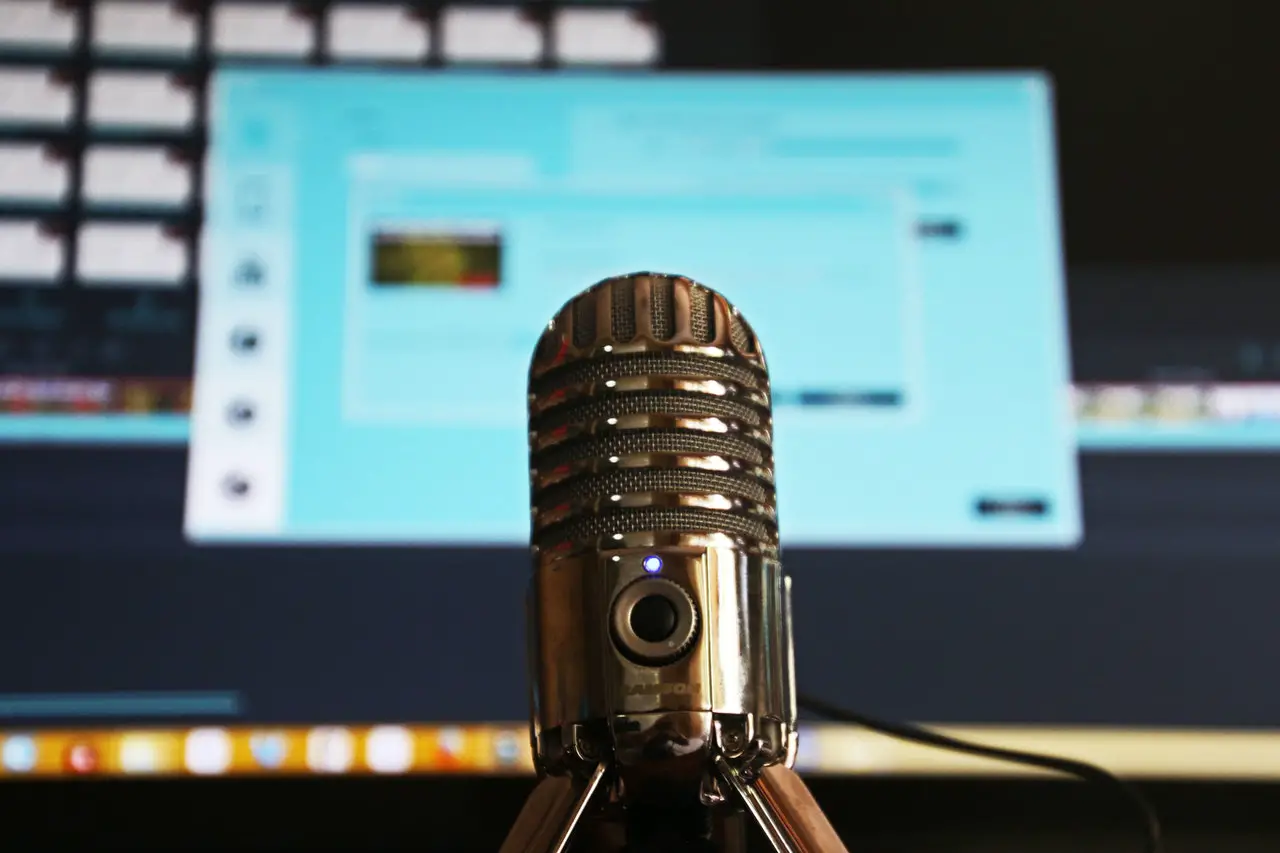
With the modern age and the increasing use of a passive mode of communication more and more people are struggling to get their point of view across clearly and concisely. There is no longer the need for messages and conversations to be short and to the point. Instead, many of us choose to use long, rambling phrases in an attempt to clearly explain what we want to say.
However, this is certainly not the best method. Because if you can say something clearly in ten words why would you use twenty? But, communicating in this way is a skill. It can be learned, but it will take time and practice. This is called critical thinking. This article highlights 7 Best Critical Thinking Podcasts.
What is critical thinking?
Critical thinking is a thinking process that takes facts, situations and judgements and mediates them through your mind to provide a rational and clear conclusion. This can be applied to almost any situation, allowing you to apply the process to all aspects of your life. Your relationships, emotions and presentation skills can all be improved with critical thinking.
So, how can you learn this skill? Well, one of the best and easiest ways to pick this up is through podcasts. You can listen and learn on the go, at your own pace. You can also choose from a variety of different approaches to the topic, allowing you to find one that best suits you.
Here we will list the best critical thinking podcasts out there.
Thinking Clearly
The Thinking Clearly podcast covers a broad span of topics but focuses on the issue of false information. In a world of “fake news” how are we supposed to know what to believe and what not to believe? Well, this is where critical thinking can come into play. It helps you to understand and analyse all of the information presented to you before making a decision.
It will provide you with “self-defense” techniques to protect yourself from believing and spreading false information. This way you can keep yourself up to date with what is going on in the world without the fear that it may be a lie.
Data Skeptic
Data skeptic is a podcast that covers critical thinking from a scientific point of view. The need to think rationally and analytically in the scientific field is of the utmost importance. After all, false scientific claims and rules can bring about some very grave and serious consequences.
The podcast is very engaging with various discussions and interviews. The different approaches to critical thinking within the various spheres of the scientific field allow you to understand the importance of critical thinking. It demonstrates how it applies to everything from medicine to artificial intelligence.
Think Fast, Talk Smart: Communication Techniques
This podcast is given by Matt Abrahams, a strategic communication lecturer and graduate from the Stanford business school. So, you can rest assured that you are in good hands. He covers critical thinking from a business point of view, demonstrating how the skills involved in critical thinking are vital to the workplace.
He covers everything that arises in the workplace that can be aided by critical thinking such as writing emails, presenting to colleagues and even talking to the boss. By tackling critical thinking from this angle many people can reap the benefits of being able to think and analyze logically and clearly, applying the techniques to their everyday life.
Inquiring Minds
Another podcast that is great for science fans. But instead of tackling the issues and advantages of critical thinking in a purely scientific field, Inquiring Minds focuses on the point of contact between scientists and wider society. The issue of rapidly developing medical process and social media and “fake news” can be a tricky one to navigate.
Often, false information spreads like wildfire and can actually be horribly detrimental to public health, even if it started out as an obvious joke. This is where critical thinking can come into play and be a useful and powerful tool. It removes the “sheep” mentality, allowing people to think for themselves, judging the data and information that they are presented with fairly and accordingly.
Critical Thinking, Critical Issues
Led by Rupert Watson, who is the head of asset allocation at Mercer Investments , this podcast demonstrates how to use critical thinking within the world of investing. Debates between the host and guests make for an exciting listen, as various viewpoints and arguments are clearly made and discussed.
This podcast covers everything from investment opportunities to market themes and emerging ideas.
The Skeptic’s Guide
The Skeptic’s Guide is another science-based critical thinking podcast, but this time it is a little easier to understand for the everyday man as it covers bad science and conspiracies. The broad appeal of discussing conspiracies means that the podcast is wonderfully engaging and entertaining, all while teaching you how to assess the beliefs for yourself.
This can then be applied to all the other various areas of your life, as you learn to debunk and reconsider beliefs that may be unfounded and just take as a given at face value.
The Overwhelmed Brain
This podcast is a great option if you are looking to use critical thinking for a much more personal aim. The Overwhelmed Brain helps people with low self-esteem, anxiety or depression. It teaches you to take back control of your emotions by critical thinking. This allows you to assess and analyze your emotions in relation to the situation and relationships, building your confidence in the process.
Critical thinking is a fantastic tool that can be applied to all areas of life. No matter your lifestyle, interests or concerns rest assured that there is a critical thinking podcast out there for you.
Even if one of these best critical thinking podcasts does not correlate exactly to you the skill is transferrable so you can still apply the skill that you have learnt to your own life even if you are just listening about people debunking conspiracy theories!
The Overwhelmed Brain – Start Here!
You may also like

What is RAVEN for Critical Thinking?
RAVEN is a tool for critical thinking in which you evaluate your sources for credibility. Using RAVEN will result in stronger arguments […]

Examples of critical thinking in the classroom
Most people are aware that critical thinking is an enormously important skill, both in education and in real life. However, you might […]

Best Apps for Problem Solving: Top Picks for Effective Solutions
In today’s fast-paced and technology-driven world, problem-solving skills are becoming increasingly crucial for personal and professional success. It is important to recognize […]

5 Critical Thinking Exercises for a Healthy and Alert Brain
Critical thinking is the ability to translate complex circumstances into meaningful insights. It has become an essential skill that every individual should […]
- PODCASTERS DATABASE
- SUBMIT YOUR PODCAST
News Reader
Brand Monitoring
Blogger Outreach or Influencer Marketing
Combined Newsletters
Embeddable RSS Widgets
RSS Combiner beta
Select Page
- Get 100k Podcasts with email contacts. Export Full Database
- Request Podcasters Contacts
- Export Contact List
30 Best Critical Thinking Podcasts
- The Peter Attia Drive
- Critical Thinking with Andrew Coppens
- Critical Q&A
- Cognitive Dissonance
- Global Development Institute Podcast
- Don't Be All Like, Uncool: A Very Bravo Podcast
- On Life. W/ Jamie Sinclair.
- Critical thinking, critical issues
- Chasing Elephants Podcast
- Paris Institute for Critical Thinking
- The Reality Check
- Jamie Clubb's Podcast
- Thinking Commercially
- Are You Just Watching? | Christian movie reviews with critical thinking
- Squaring the Strange
- Inquiring Minds
- Throttle Up Radio with Captain Kevin Smith
- Ex-Jehovah's Witnesses-Critical Thinkers » Critical Thought Podcast
- Thinking Clearly
- Desert Voices: Spiritual Conversations
- The Ayaan Hirsi Ali Podcast
- The Talk of Shame
- Re: thinking education
- HIS REVIVAL
- Barely Gettin' By
- Mentally Unscripted
- Critical Thinking Required
Critical Thinking Podcasters
- Critical Thinking Podcasts Newsletter
Critical Thinking Podcasts
Here are 30 Best Critical Thinking Podcasts worth listening to in 2024
1. The Peter Attia Drive

2. Critical Thinking with Andrew Coppens

3. Critical Q&A

4. Cognitive Dissonance

5. Global Development Institute Podcast

6. Don't Be All Like, Uncool: A Very Bravo Podcast

7. On Life. W/ Jamie Sinclair.

8. Critical thinking, critical issues

9. Chasing Elephants Podcast

10. Paris Institute for Critical Thinking

11. The Reality Check

12. Jamie Clubb's Podcast

13. Thinking Commercially

14. Are You Just Watching? | Christian movie reviews with critical thinking

15. Squaring the Strange

16. Inquiring Minds

17. Throttle Up Radio with Captain Kevin Smith

18. Ex-Jehovah's Witnesses-Critical Thinkers » Critical Thought Podcast

19. Thinking Clearly

20. Desert Voices: Spiritual Conversations

21. The Ayaan Hirsi Ali Podcast

22. The Talk of Shame

23. Re: thinking education

24. HIS REVIVAL

25. Barely Gettin' By

26. Mentally Unscripted

27. Critical Thinking Required

Media Contact Database
Why list and promote your podcast on feedspot.
- SUGGESTED TOPICS
- The Magazine
- Newsletters
- Managing Yourself
- Managing Teams
- Work-life Balance
- The Big Idea
- Data & Visuals
- Reading Lists
- Case Selections
- HBR Learning
- Topic Feeds
- Account Settings
- Email Preferences
Share Podcast

Improve Your Critical Thinking at Work
Helen Lee Bouygues, founder of the Reboot Foundation, believes that a lack of critical thinking is responsible for many business failures. She says organizational leaders often...
- Apple Podcasts
- Google Podcasts
Helen Lee Bouygues, founder of the Reboot Foundation, believes that a lack of critical thinking is responsible for many business failures. She says organizational leaders often rely too heavily on expertise and then jump to conclusions. Instead, leaders should deliberately approach each problem and devote time thinking through possible solutions. The good news, she says, is that critical thinking skills can developed and practiced over time. Bouygues is the author of the HBR.org article “ 3 Simple Habits to Improve Your Critical Thinking .”
Download this podcast
CURT NICKISCH: Welcome to the HBR IdeaCast from Harvard Business Review. I’m Curt Nickisch.
You know the story. Maybe it’s even a nightmare of yours. One day, the company is flying high. No reason to change anything. Customers and contracts will always be there.
And then one day – the money stops flowing in, and the business is suddenly in real trouble.
Our guest today knows this all too well. She has been an interim CEO, CFO, or COO at more than one dozen companies. Sometimes they needed her because they were mismanaged. Some failed to stay in front of changing technologies. In a few cases, members of the senior team were simply negligent. But in her experience, all these organizational problems shared one root cause: A lack of critical thinking.
Our guest is Helen Lee Bouygues. She’s the founder of the Reboot Foundation. Based in Paris, the nonprofit helps parents, teachers and employers think more critically about their problems. She’s also the author of the HBR.org article “ 3 Simple Habits to Improve Your Critical Thinking .” Helen, thanks for being here.
HELEN LEE BOUYGUES: Thank you for having me Curt.
CURT NICKISCH: Helen, you worked in transitional periods for a bunch of big companies. And, you say that many people’s business problems really come down to simple errors in critical thinking. That just sounds a little surprising to me and I wanted to hear why you say that.
HELEN LEE BOUYGUES: Yeah, I think at first glance people believe that critical thinking is something that we do every day and it comes very natural. But in reality, critical thinking is not only extremely important for success in life, but it’s also something that needs to be learned and practiced.
Critical thinking skills are very much predictive of making positive financial decisions, even more so than raw intelligence, but people kind of forget what that actually means in terms of tools and practices that they need to exercise in order to make the right decisions, or at least the better decisions.
Based on my 20 years of different turnaround and transformation experience, I have noticed that very often when things go sideways or create problems and companies find themselves in a situation of a need for turnaround, it’s typically been because I would argue that the leadership perhaps lacked some elements of critical thinking.
CURT NICKISCH: Why do you think we lack critical thinking skills, or why do you think we think we’re better at it than we actually are?
HELEN LEE BOUYGUES: That’s a great question Curt and actually we did a survey at the Reboot Foundation about a year ago, where we asked people questions of everything from ranging from how often do they practice critical thinking to how important they think critical thinking is, and how often they teach their children critical thinking?
I think one of the reasons why it’s more difficult in today’s day and age is that we live in a world of incessant distraction and technology is often to blame as well. We live in a period when we have a question, we want that instant gratification getting the information, just typing the question on Google, having the answer quickly and so, we don’t actually have as much time to stop and think.
And part of the necessity of critical thinking is having that ability to take a step back and actually think about your own thinking. And yet, it’s actually becoming more and more critical because as businesses evolve and there’s more urgency to make decisions, that’s exactly when we need to do more critical thinking than perhaps we used to, because of evolving technology and rapidly changing competitive environments in business.
CURT NICKISCH: You say that getting better at critical thinking is something we can learn and cultivate?
HELEN LEE BOUYGUES: Yes. The opposite of critical thinking could be selective thinking. And naturally selective thinking is something that you can actually do relatively quickly because it’s just a reinforcement of your own opinion. People in business can get better at critical thinking if they just do three things. One, question assumptions. Two, reason through logic. And three, diversify thought.
CURT NICKISCH: How do you actually do that?
HELEN LEE BOUYGUES: So, the taking a break, and that doesn’t mean doing meditation or yoga, but actually taking the time. It could be going for a run, or a walk around the block. That alone creates that opportunity for an individual to take the time to stop and think. So, that’s one dimension I think that people need to put in their normal practice.
The second element that you wouldn’t necessarily think about in terms of an attribute necessary for critical thinking is management of emotions. So, the number of times that you can imagine, especially in a boardroom for a company that’s going through a difficulty, heated discussions, insults across the room. In that type of environment, it’s very difficult to engage in rational thinking.
As much emotions are important, when it comes to true important decisions, we need to put aside the feelings and emotions that go awry in a meeting setting. In addition to that, I think the other element of what we need to make sure that we conduct is making sure that we have other points of views.
CURT NICKISCH: When you talk about looking at things from opposing viewpoints, sometimes that’s helpful when you have somebody who plays that role, or when you have a diverse team that you can share ideas with and explore. I don’t know that all of us are as good of just thinking from other perspectives when we’re kind of just in our own thoughts.
HELEN LEE BOUYGUES: Yeah, but it’s again, that’s why I think I started off this conversation Curt, in saying that critical thinking is something that you actually need to practice and you need to learn. Because indeed, it’s natural and it’s very human to stay in your own personal bubble because it’s comfortable.
But you can actually do this from a small scale to a larger scale, and what I mean by that specifically is if you’re starting small, if you work in for example, in accounting. Go have lunch with people in marketing in your organization.
I have a good friend, Mathilde Thomas, she’s actually the founder of Caudalie which is a very successful line of skincare products made from grapes. Mathilde grew up spending her time in her family vineyards, so her family originally was in the wine business. And the idea of the skincare product came about because one day a friend of the family, this physician, came to visit the vineyard and he was looking at the vat of grape skins that were about to be discarded and he said, well that’s a pot of treasure, so why are you just discarding that away? And that’s effectively how the business of Caudalie actually began.
So, that’s a positive story where people who are not necessarily in the same field can get together and actually come up with innovation or here it wasn’t even intended to be an innovation. It just was an idea that sprung from two people from different walks of life getting together and coming up with the business idea. So, that’s a positive example in terms of diversity.
CURT NICKISCH: Where have you seen this failure in some of the companies that you worked with? Where have you seen the inability to diversify thought and opinions and host costly that can be?
HELEN LEE BOUYGUES: I think in terms of negative, I’ve seen a specific example for a pharmaceutical company where the founder brought in a CFO who actually had very little experience in accounting. He had experience in mergers and acquisitions, in elements of financing, but not pure accounting.
But his true qualification of becoming the CFO was the fact that he was a very, very good friend of the CEO’s and you see that example over and over again, including in boards. The number of times you see the board of a company being surrounded, the CEO being surrounded by his or her friends, which is why often I think from time to time, you have companies, publicly listed companies where sometimes the board may not see certain indications.
Be it the case of a Steinhoff or an Enron, which is an extreme case of fraud, but even in terms of general decisions, strategic decisions, that if you have a board composed of just a group of friends of the CEO’s, you don’t have diversity of thought in that type of environment.
CURT NICKISCH: So, we’ve talked some about questioning assumptions and the power of diversifying thought. But another point you make is that people need to get better about reasoning through logic. And I think this is going to surprise people too because logical is just such a household word. We think that we think logically, so why is logic a deficit and kind of a prerequisite for the critical thinking you think we need to see more of in management?
HELEN LEE BOUYGUES: So, one of the stories that I like to bring up is a specific company that I encountered a couple of years ago. It’s one of the world’s largest producers of aluminum tubes and they have clients ranging from L’Oréal to Proctor and Gamble, all over the world.
And the CEO of this company was blindsided by his own fervor and probably unreasonable optimism about the outlook for the revenue profile of this company. In reality, the company was in relatively dire financial straits, but again he was blinded with his hope that his clients would never leave because the switching costs of his clients would be too high, or that at least was his hypothesis.
And for some business leaders I think some optimism is obviously a good thing. There wouldn’t be Ubers or EBays if we didn’t have entrepreneurs who have that charisma and exuberance. But what I often find in companies is CEOss with something I call simply WTF. Now Curt, that’s not what you think that we commonly use in text messages, but it’s for me it’s “wishful thinking forever’.
And I think that blinded optimism can often mask the capability and the ability to reason through logic and actually re-question your approach and saying, “well, can my customers decide to change vendors? Is the competitive environment actually shifting? Are there low-cost companies that could actually take over my business even if that hurdle rate is high?”
So, it’s again coming back to being able to ask the right questions and looking at your business and saying, “is there a different way of doing things?” And that’s when you avoid the pitfalls of actually reasoning through logic.
And it comes back to the argument of having different views from your original views and your original sentiments. And obviously in order to do that, we need to really pay close attention to our own chain of logic.
CURT NICKISCH: Which I like by the way, wishful thinking forever. I’m going to read text messages that way now. Probably make them a little more optimistic. Yeah.
A lot of companies pay consultants to do this kind of critical thinking for them and they come in with tools and concept mapping, and all of the sorts of things that maybe they’re a little more deliberate about and also, removed from the emotion of working in the culture of a company. Do you see consultants as essentially paid critical thinkers?
HELEN LEE BOUYGUES: I think many consultants are good at critical thinking. I don’t believe that the industry of management consulting is a sector that is there to enforce critical thinking for companies. And let me explain why I believe that. A lot of, in a lot of situations CEOs seek validation and look for evidence that supports their preconceived notions. And consultants are often trained to agree with their client’s theories.
So, I would almost counter argue and say, for CEOs to effectively use consultants, they almost need to be very precise and be very upfront in their scope of work with the consultants, demand and ask that the consulting firm give a different point of view, or an opposing point of view than the original thesis of a leader.
Now that is sometimes hard to do. It goes back to the original part of our discussion. It’s less comfortable for leaders and in a lot of situations why CEO’s are hiring consultants are to justify and explain with more detail to their boards of why they’re doing certain strategic activities. So, that’s where we have to be careful about relying on consultants as quote, “a mechanism to do better critical thinking in business”.
CURT NICKISCH: Have you actually seen companies turn around when they change the way they approach problems and instituted critical thinking across the organization in a more deliberate way?
HELEN LEE BOUYGUES: Yes. I worked with a telecom company in Africa, not so long ago. And they had probably the lowest customer satisfaction rate across the board, amongst the different countries in Africa. And the CEO was somebody who was a very open minded, wanted to challenge – now you could argue Curt, they were on the low, they couldn’t get lower in terms of customer satisfaction, so they only had room to go up.
But if you put that aside, what he instituted was to have a sub group of his team to go visit another South African country that had very high customer satisfaction rates. So, it was, I would call creating an environment for its employees to have a bit of a diversity of thought, but also to actually be exposed to give the capacity for its employees to question the assumptions about what they were doing wrong.
So, very good CEOs not only are capable of trying to conduct metacognition for him or herself, meaning questioning his or her own way of thinking, but he’ll challenge his team and help them to challenge their own way of thinking by showing different examples of for example, success stories in the same type of work where in a case of this telecom company in Africa, where they could see and visit customer services centers in other African countries where they had high customer satisfaction rate.
So, it’s giving the exposure to its team to seek out diversity of thought, but also promoting that, and encouraging that its employees think differently than being focused on their own silos of work and being, trying to be efficient in their own capacity, in their existing dimension.
CURT NICKISCH: Yeah. So, if that was a good critical thinker, as a CEO, what do most leaders do in that situation? What does the “uncritical thinker” do?
HELEN LEE BOUYGUES: The uncritical thinker would be to try to gain more efficiency out of its existing employees and continue to do more of the same thing. But probably putting in more KPI’s. That’s a popular thing that leaders do. And try to put more pressure in the system so that companies are more productive. Rather than thinking out of the box and trying to say, should we be doing something differently than the way we’re doing it today?
CURT NICKISCH: And for individuals? Because whether or not you have a CEO who’s good at this, you can still affect your own team and you can still affect your own work with your own critical thinking. What should they do to get better at critical thinking?
HELEN LEE BOUYGUES: Be curious. Ask the questions. “ What if” questions are great. It’s important to constantly challenge yourself saying, what if I did something differently than the way I’m doing it now? What if I approached my client differently than the way I’m doing it now? What if I changed the processes? Would there be improvement? That’s the type of individual who can improve by actually questioning the assumptions of what he or she is doing on a daily basis.
And then the second element again, is trying to be very factual and be rigid about gathering facts and proof and accumulating data in order to truly justify why you’re doing what you’re doing. It’s going back to paying close attention to the chain of your own logic.
And then the third is expanding your horizon by interacting with people that are not in your existing silo. So, I go back to the example, very simple example, go have lunch, go have a drink with somebody that’s not in your same department, but go reach out to somebody who’s in a totally different building, or even different division within your group.
CURT NICKISCH: Helen, thanks for coming on the show and talking about thinking through how to be a better critical thinker.
HELEN LEE BOUYGUES: Thank you so much. It was a real pleasure to be on your show.
CURT NICKISCH: That’s Helen Lee Bouygues. She’s the founder of the Paris-based Reboot Foundation and the author of the HBR.org article “ 3 Simple Habits to Improve Your Critical Thinking .”
This episode was produced by Mary Dooe. We get technical help from Rob Eckhardt. Adam Buchholz is our audio product manager.
Thanks for listening to the HBR IdeaCast . I’m Curt Nickisch.
- Subscribe On:
Latest in this series
This article is about decision making and problem solving.
- Managing yourself
- Strategy formulation
Partner Center
- Skip to primary navigation
- Skip to main content
- Skip to footer
Teaching in Higher Ed
Rethinking Critical Thinking
With mays imad.
| April 21, 2022 | Twitter Facebook LinkedIn Email
Play in new window | Download | Transcript
Subscribe: Apple Podcasts | Spotify | RSS | How do I listen to a podcast?
Mays Imad shares how she (and others) is rethinking cricital thinking on episode 410 of the Teaching in Higher Ed podcast.
Quotes from the episode
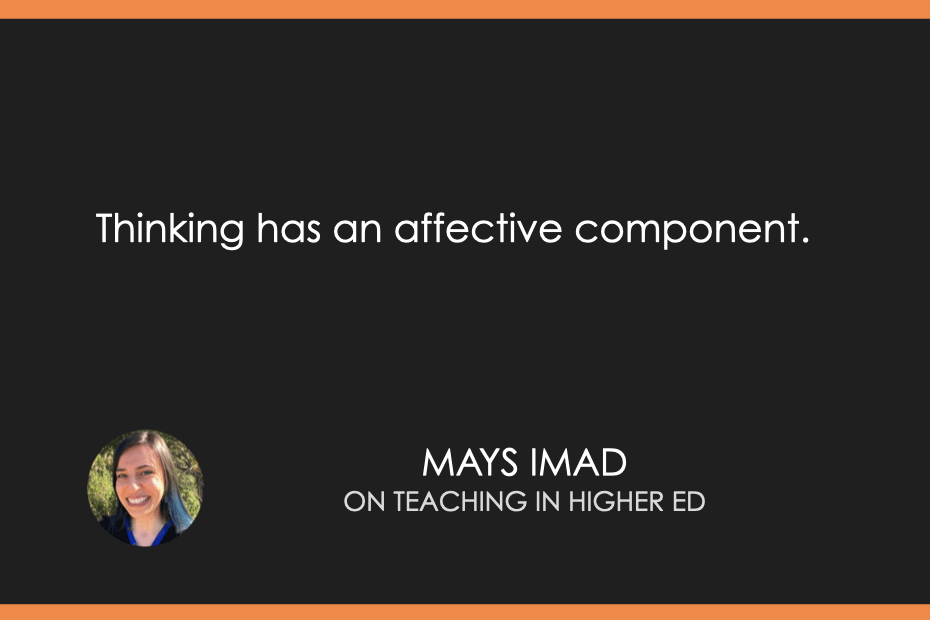
It was so important for me to make my own decisions and come to my own conclusions. -Mays Imad
Thinking has an affective component. -Mays Imad
Our rational thinking can be hijacked when we are under the influence of fear. -Mays Imad
- What would Socrates think? by Mays Imad
Intellectual Empathy: Critical Thinking for Social Justice by Maureen Linker
- Five Essential Ways of Knowing, by Ben Harley and Mays Imad for Inside Higher Ed
- Rumi quote: “You are not a drop in the ocean. You are the entire ocean in a drop.”
- Susannah McGowan
- Sam Wineburg
ARE YOU ENJOYING THE SHOW?
On this episode.

Mays Imad is a neuroscientist, a science educator, an educational developer, and a mental health advocate. She is a Gardner Institute Fellow and an AAC&U Senior Fellow. Dr. Imad’s current research focuses on stress, self-awareness and regulation, advocacy, and classroom community, and how these relate to cognition, metacognition, and, ultimately, student learning and success. She is also interested in better understanding the various dimensions of critical thinking, including the role of feelings in short circuiting or enhancing critical thinking. Through her teaching and research, she seeks to provide her students with transformative opportunities that are grounded in the aesthetics of learning, truth-seeking, justice, and self-realization.
- Bonni Stachowiak
Bonni Stachowiak is the producer and host of the Teaching in Higher Ed podcast, which has been airing weekly since June of 2014. Bonni is the Dean of Teaching and Learning at Vanguard University of Southern California. She’s also a full Professor of Business and Management. She’s been teaching in-person, blended, and online courses throughout her entire career in higher education. Bonni and her husband, Dave, are parents to two curious kids, who regularly shape their perspectives on teaching and learning.
RECOMMENDATIONS
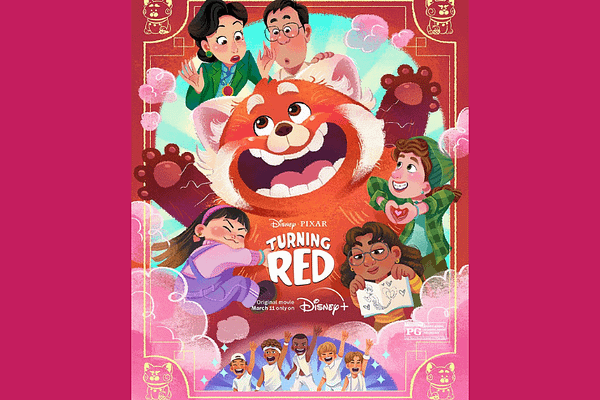
Turning Red
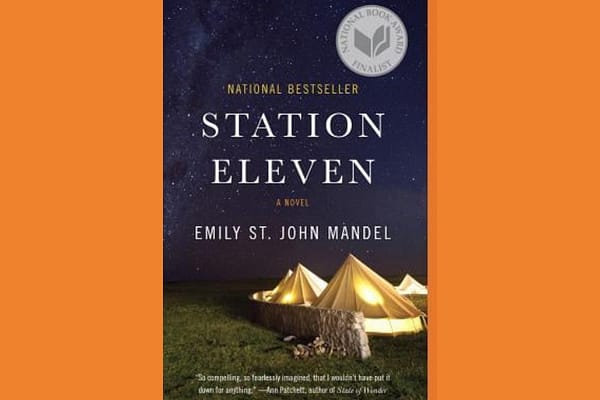
Station 11 book
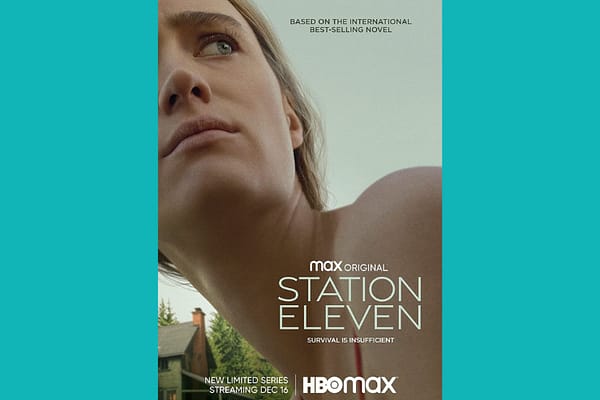
Station 11 film
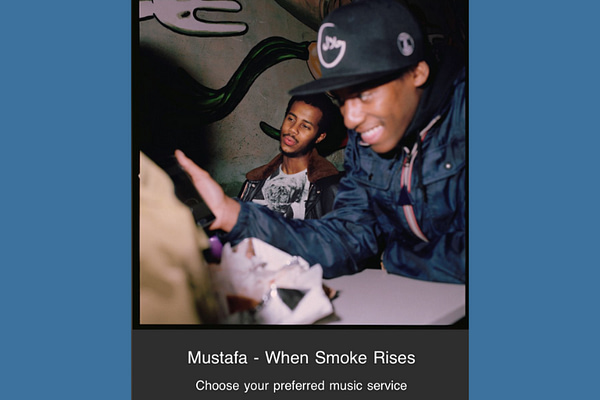
Mustafa - When Smoke Rises

Mustafa the Poet
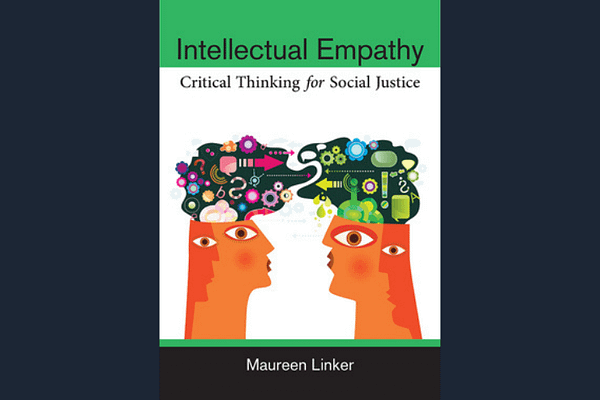
GET CONNECTED
Join over 4,000 educators.
Receive a free Educational Technology Essentials Guide and weekly update.
Related Episodes

with Lauren Bellaera

with Tine Reimers

with Wendy Purcell


with Nicola Ulibarri
.
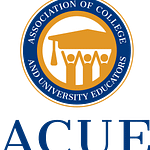
[00:00:00] Bonni Stachowiak: Today on episode number 410 of the Teaching in Higher Ed podcast, Mays Imad is back, and she is Rethinking Critical Thinking.
[00:00:12] Production Credit: Produced by Innovate Learning, maximizing human potential.
[00:00:21] Bonni: Welcome to this episode of Teaching in Higher Ed . I’m Bonni Stachowiak and this is the space where we explore the art and science of being more effective at facilitating learning. We also share ways to improve our productivity approaches, so we can have more peace in our lives and be even more present for our students.
Mays Imad received her undergraduate training from the University of Michigan Dearborn, where she studied philosophy. She received her doctoral degree in cellular and clinical neurobiology from Wayne State University School of Medicine in Detroit, Michigan. She then completed a National Institute of Health-Funded Postdoctoral Fellowship at the University of Arizona in the Department of Neuroscience. She joined the Department of Life and Physical Sciences at Pima Community College in Tucson, Arizona, as an adjunct faculty member in 2009, and later as a full-time faculty member in 2013.
During her tenure at Pima, she taught physiology, pathophysiology, genetics, biotechnology, and biomedical ethics. She also founded Pima’s Teaching and Learning Center. Imad is currently teaching in the biology department at Connecticut College. Mays is a Gartner Institute Fellow and an AAC&U Senior Fellow within the Office of Undergraduate STEM Education.
Dr. Imad’s research focuses on stress, self-awareness, advocacy, and classroom community, and how these impact student learning and success. Through her teaching and research, she seeks to provide her students with transformative opportunities that are grounded in the aesthetics of learning, truth-seeking, justice, and self-realization. Mays, welcome back to Teaching in Higher Ed .
[00:02:36] Mays Imad: Thank you. Thank you for having me.
[00:02:38] Bonni: We’re going all the way back together today. We’re going to go back to your childhood. Could you describe yourself as a child to us? What were you like?
[00:02:48] Mays: I was very introspective. In fact, recently, I was reading some teacher’s comments from grade school from first grade and it describes me just really so specifically that I needed time to sit alone and think and then ask questions and go back and sit alone and think. I don’t think I was an introvert, but I definitely was very much theories and abstract and just very introspective.
My paternal grandfather was an intellectual, so I would ask him big questions. I learned what excited him. I’d ask him about history, and I think he really instilled in me this love of asking questions and learning through questions and finding home in those questions if you will.
[00:03:52] Bonni: There was something that you worried about a lot as a child as part of this thinking process. What did you worry a lot about?
[00:03:59] Mays: I was terrified of being manipulated. I think in part because I knew I experienced whether it was on the playground or at the dinner table, myself, switching my mind or getting persuaded when I didn’t want to or manipulated. I knew how easy that can happen and I was terrified of it happening to me and losing my autonomy. It was so important for me to make my own decision to arrive at my own conclusion. While I couldn’t articulate why it had something to do with– well, I now know, with just living life to the fullest.
[00:04:54] Bonni: As we fast forward a little bit in your life, could you take us to a very important turning point in your life, and that was the year of 1993?
[00:05:04] Mays: Yes. That’s the year that my mother and sisters, we emigrated. We escaped Iraq. We had to leave, my sisters were ill. This was after the 1991 Desert Storm. Iraq went from being developed country to an increasingly undeveloped country. There was an embargo and life was just very difficult for your average citizen. It was difficult. It was difficult to leave your school, to leave your friends and family, and all of the uncertainty.
As a teenager, it was really, I remember pain. While we were crossing the borders between Iraq and Jordan, there were issues. We were caught that we were trying to leave the country and my mom was taken away. I remember she turned to me and she said, “Take care of your sisters.” I had two sisters with me in the taxi, the stranger, taxi driver. I do remember both being angry that I can’t believe I’m doing this and I had no say and at the same time, just terrified.
Somehow I kept thinking, I just need to finish my school. It became like a soothing lullaby, I just need to finish my school. Somehow, if I finished my school and got my education, I knew that I would be okay. Whatever happened, whether my mom came back or not, I would be able to take care of myself and my sisters. My mom came back, we were able to leave, and we made it to Jordan. Then we made it to the States. I think back about that story and what led to that realization that if I got my education, that it was so intimately linked to being okay.
[00:07:20] Bonni: That to me seems quite an unusual source of comfort. Do you also find it unusual source of comfort or is that my own cultural background? Perhaps speaking here, do you see that as something that would be a common way, when someone faced with that kind of a situation, to see it as such a comfort?
[00:07:40] Mays: Yes. That’s a great question. I’m not sure. I know for me, it’s always been a source of comfort. I wonder if it’s because maybe the tradition that I grew up in, or my grandma reciting poetry and teachings of sages about, for example, Rumi says, “You’re not a drop in the ocean. You’re the entire ocean in a drop.” It’s this, sometimes as a child, or even as an adult, I got glimpses of what that means and I find it enormously comforting. It makes the world less lonely, in an existential sense, if you will.
When I look back, and the hardship that I’ve been through as an immigrant, just as a human, I always found comfort in education, and even healing and understanding, and still to this day. Then, I think, when I speak with students and they share similar experiences that reaffirms my experience, I think, “Well, maybe it’s maybe it is a common thing that we have.”
[00:09:05] Bonni: Something I know that you find to be missing or lacking in education today is critical thinking. I know from what little bit I know about critical thinking, when we say that phrase or that word, we mean a lot of different things by it. Before we really talk about what that means, would you share when you remember noticing that it wasn’t there? What kinds of circumstances would you find yourself in where you would think, “Well, they know this, but they don’t possess critical thinking?” Maybe that’s even in you. Did you notice it first in you or did you notice it first in learners?
[00:09:47] Mays: I did notice it in me I think towards the end of my graduate or even postdoctoral years. My undergraduate training was in philosophy. It was all critical thinking, it was all just Socratic questioning and logic and just critical thinking. Then I went and I got my PhD in clinical neuroscience, and then I did my postdoc and it was this ultra-focused very disciplined, strict approach to understanding the world. I understand why that is, and yet I was noticing that I was becoming, I don’t know, less cerebral, less critical, less creative towards the end of my postdoc. That’s in part because I was so focused on that one gene that I was studying.
Fast forward several years later, I’m in the classroom and I was teaching a variety of classes, science classes, and one class in particular that I began to ask myself more and more questions about critical thinking was biomedical ethics. Biomedical ethics is a class that both science and non-science major students took it. It requires that we do argumentations and learning about deductive and inductive reasoning and learning about fallacies. There’s a lot of debate if you will. We write arguments, we refute arguments, and so on.
That’s when I began to notice in students’ writings, including students who had had me in previous courses and did really well in anatomy and physiology and genetics, they were really struggling with the argument part or the constructing or deconstructing arguments, the premise, the conclusion, assumptions, and so on. Then I started just collecting data to see if it’s just an anecdote, if it’s my perhaps some bias or if it’s actually there. What the data showed, this is from several courses, is that indeed students were struggling with the part of the course that dealt with logic and critical thinking, and fallacies.
In fact, students would say, this was the toughest part of the course. Students would say, “How come this is the first time we’re learning it?” I thought, is it? Then I look at the science curricula or I look at high school curriculum and it is, we don’t teach a course on logic. We don’t teach a course, that’s exclusively on critical thinking. Then I did another study where I asked STEM students, “Do you want to learn this?” Overwhelmingly, over 90% said, yes. Right now, we’re not learning it in a systematic, intentional way. Some went on and said, “This is hurting us in the real world.” They linked it to misinformation and linked it to just– some would even link it to our democracy and how it’s all interconnected.
[00:13:29] Bonni: When you asked them, “Do you want to learn this?” How did you ask this? Was this something that they had already learned and so you asked them, is this something you’d want to learn more about, or did they already have a conception of whatever came to mind when they thought about argumentation and logical fallacies, et cetera?
[00:13:50] Mays: I did two things. With students that were taking my courses, at the end of the course, there is a course evaluation. I added a question about, “Do you think is merit to teaching critical thinking and logic in STEM courses and if so, why?” Then separately, I did a survey where I asked STEM students at the college, at Pima Community College, if they think it is important to include critical thinking and logic in introductory STEM courses. In both cases, students came back and said, “Yes, please, we want this. Help.”
[00:14:35] Bonni: What can you tell us about what is missing from even those of us that may introduce some of these things in our classes, as far as the inner landscape of critical thinking? What can you tell us about that?
[00:14:49] Mays: Thank you for asking. When I presented some of this work at The Society for the Advancement of Biology Education Research, SABER, there was a lot of interest. One of the recurrent questions that I got from my colleagues is, “How do we do this?” What I did is I and some colleagues, Suzannah McGowan, for example, we wrote an NSF grant, it’s an incubator grant, and we got the grant. We gathered together a group of science educators. What we wanted to do is we wanted to create–
First of all, decide on definitions. What is critical thinking? How do we teach it? What is logical thinking reasoning, and how do we teach it? We wanted to also come up with examples, sample assignments, and to really spend time on all right, we have those sample assignments, we have definitions, how do we assess it? We did about a year of work with that incubator grant. We created a website. We put everything on that website.
Now, in the process of doing research with my students and also doing the work with that incubator grant, there were two things that emerged. Number one, critical thinking is not enough. If I was seeing that students learned the logical fallacies and learned the structure of an argument and how to assess it and analyze it, and yet they were getting stuck when they encountered something that was ambiguous that dealt with uncertainty, or definitely they were getting stuck when they were dealing with a topic that had some ideological or political implication.
That came out from the research. In addition, we did some consulting with Sam Wineburg, who’s done a lot on misinformation. Sam and others are of the opinion that it’s not just critical thinking that we need to be able to tell if something is real or fake, and then we also did some work with Maureen Linker who taught logic and critical thinking and philosophy at the University of Michigan Dearborn, who’s written a book on intellectual empathy for social justice.
She and others, and the science of learning tell us that thinking has an effective component. That feelings are an important part of the problem-solving or thinking process. The whole inner landscape then is a call for us to broaden what we think and what we conceive of critical thinking. The American Philosophical Association now really confines the definition of critical thinking to logic and these cognitive and rational processes, but we know that those processes don’t happen without the affective, the emotional component.
Then what does it mean to have a framework that engages with the feelings also? The reason it’s important is oftentimes I tell my students and my colleagues and myself is that our rational thinking can be hijacked when we are under the influence of fear but if I learn to be able to recognize those strong emotions, the feelings, and work with them, then rather than getting hijacked and impacting sometimes in a negative way, my thinking process, they can even inform it. The inner landscape becomes a quest for understanding the relationship between critical thinking and the critical feeling, but also the critical engagement.
[00:19:29] Bonni: Something that really helped me understand this, as I read your work, was an assignment that you gave to students about imagining a world devoid of critical thinking. Could you talk about that assignment and what they came up with? This was just fascinating for me.
[00:19:46] Mays: As it was for me. I learned from students that if I teach them the fallacies, they’d become really good at it. They become really good at just constructing arguments, deconstruct, they’re really good but what I felt was missing is the personal connection to why this is important. This is not just a game and an exercise. I wanted to see if they were making the connections to our survivability, just our democracy, our humanity. That’s what I talk about in the paper. It’s really important to interrogate, with our students, the utility of critical thinking.
I created this assignment where I say, “Describe, imagine a society that lacks critical thinking. What might that society look like and why?” Then there’s another part, is a reflection on their reflection. It was really incredible what came back and what came back actually led me to believe that no, the students actually are really engaged in critical thinking. In fact, we all are in a day-to-day and what we need is perhaps more emphasis on it and more discussion about it.
What came back is this without me preparing them, without me even giving them any hint, but this link to our ability to live together, our ability to thrive, some students talked about empathy. Some students talked about justice, some students linked it to the demise of society and democracy, and so on. They were able to see, at least, the students that I worked with, the connection between this class, this assignment, these fallacies that we were learning, and the future and their role in that future.
[00:22:03] Bonni: Before we get to the recommendation segment of the podcast, I’d love to have you share a little bit about what you are seeing as the difference between really teaching something, or perhaps I should phrase it a different way, really getting to experience people, learning something versus introducing concepts or ideas, or asking people to memorize things. What are some distinctions that you’re noticing between those two things?
[00:22:32] Mays: That’s a great question, not just with critical thinking, with any topic and what I’m seeing with students, comments, and their reflections is students want to really fit and marinate with those topics and concepts. They don’t want to be presented, to be given a list, memorize it and go on. They’ve already made the connections that this is important in the real world if you will.
In fact, I was just analyzing some of the qualitative data from one of the studies I did on critical thinking and what comes back, again and again, is students want this to be infused in all of their courses across curriculum, and to be able to practice more and more. One of the students, whom I was reading their input, said that it actually helps reduce their imposter syndrome. The more they practice the skills, the more it becomes second nature, the more they freeze when they are confronted with new situations.
I remember in my classes, the classes that left an impact on me that remember to this day, years later, those are the ones where there was a lot of reinforcement and a lot of integration and making connections, not just with each other, but the materials. I mentioned Dr. Maureen Linker. I remember she was my professor and she was remarkable. Even the stories that she told about her family, about her upbringing. She used those stories to help us practice some of those critical thinking or logic, symbolic logic tools we were using in the classroom. She understood though remarkably so, the affective component of learning.
[00:24:47] Bonni: Something that I’ve been thinking about with regard to this is, and I do think we have to be cautious about this, but I have a colleague who’s responsible for a class that our first-year students take and she’s finding that she gets better information when she asks them their second year about that class and the value of it than if she asks them at the end of that first semester in college. Again, I think we have to be careful not to just say, “Well, it doesn’t matter.” I think that initial feedback, I still believe is important yet. Also thinking about it a little bit longer.
To that end, I’m teaching a class right now where I use some modules built by Mike Cofield about information literacy. I had a young man just tell me yesterday, say, “I just don’t think I’m going to use this.” It didn’t make me that afraid because I have noticed that he has a little bit of a pattern of his initial response to things is to push it back a little bit. I’m seeing but I’m thinking, “I want to talk to you in four weeks” because we’ve just left that and now I have some assignments. The acronym that Mike Cofield uses is SIFT. I called the assignments SIFT in the wild and they’re going to be able to go read about any of the topics that they find particularly of interest that relate to the course and then apply it.
I think that it’s possible that there’s hope for this young man that I’m not going to give up, but because we don’t do that in a lot of our classes, they’re so used to, “Well, I’m just evaluating this because now this module over we’re going on to something else,” and they’re used to this past fail grade for whether or not any of this is going to be beneficial to them.
Then I know this is another thing that you have written about and researched about too because, to me, it’s the context in which these skills are going to be used. To me, unless students are able to have both the agency to explore context that may be more relevant or important to them in their own lives. Anyway, this is something that you were getting me thinking about.
[00:27:11] Mays: I’m so glad you mentioned that. It reminds me of– I always would say, “Why should you worry about this? Why should you invest energy in this? What does this have to do with your Sunday brunch with your family?” I always do that in my classes. I remember a student who finished bioethics with me and she went through the module and critical thinking and logical reasoning and so on.
She come to visit me maybe a year later or so. She said, “I love critical thinking.” I said, “Oh yes, say more.” She said, “Every time I would argue with my husband, I end up crying and I get too emotional.” The other day, they had an argument. That’s what she said. “Then in the middle of the argument, I said, “Well, that’s a fallacy.” She said, “Dr. Imad,” and it shifted the whole argument. “I wasn’t crying. I was like, “Oh, I caught a fallacy.” To hear this student just feel so empowered by her own brilliance and reason and critical thinking was really remarkable. It’s an everyday process. It shows up, it can empower us. It can help us. It can illuminate our path forward.
[00:28:38] Bonni: The Sunday Brunch. [laughs] Well, this is the time in the show where we each get to share our recommendations. Today, I’d like to share about a movie that one of our kids has been looking forward to pretty much since she first heard about it, it is the new Pixar movie. It is called Turning Red , and it is an absolute delight. It’s funny, it’s charming.
It’s about a 13-year-old girl who struggles with some changes that are happening, including that she keeps turning into a red Panda. I’m not giving much away because you definitely see that in the previews. It’s just a really fun, delightful movie and something I would seriously suggest for the whole family. It’s great to bring out all kinds of conversations and to help us think about how we navigate our emotions. That’s my recommendation for today. Mays, I’m going to pass it over to you for yours.
[00:29:40] Mays: Thank you. I love your recommendations. I recommend either the book or the show Station Eleven , and it’s a post-apocalyptic show story about the power of art and creativity in helping us endure trauma and change and uncertainty, and it’s beautiful. I loved it so much that I couldn’t finish it. I wasn’t ready to part ways with it.
[00:30:11] Bonni: Oh.
[00:30:12] Mays: I recommend that. For our music lovers, I recommend Mustafa the Poet who is a Somali Canadian beautiful artist. He released a recent album and it is heartbreaking and heartwarming, it’s a tribute to his friend Ali. What else? To learn more about this, I would recommend, Maureen Linker’s book, Intellectual Empathy: for Social Justice .
[00:30:50] Bonni: Such great recommendations. I’m so glad to get to have this follow-up conversation with you. Thank you so much for introducing me to this wide array of reading and research that feel so new and fresh to me and so important. I’m so glad to be a small part of. Hopefully getting to have other people be introduced to it as well. I hope people will check out the show notes because there’s a lot of great resources there as well as the recommendations too. Thank you for coming back on Teaching in Higher Ed .
[00:31:18] Mays: Thank you so much and thank you for this beautiful work that you do.
[00:31:24] Bonni: Thanks once again to Mays Imad for joining me for today’s episode of Teaching in Higher Ed .
If you’d like to see the show notes for today’s episode, head on over to teachinginhighered.com/410. If you would like to not have to remember to do that every time, I invite you to sign up for the weekly update. You can do that by going to teachinginhighered.com/subscribe. Once a week, you will receive from me an email that has the most recent podcast guest, other related episodes, some recommendations that are beyond what shows up in the episodes, quotable words, and a little preview of the following week’s episode. Again, I encourage you to head over to teachinginhighered.com/subscribe. Thanks for listening, and I’ll see you next time.
[00:32:26] [END OF AUDIO]
The transcript of this episode has been made possible through a financial contribution by the Association of College and University Educators (ACUE). ACUE is on a mission to ensure student success through quality instruction. In partnership with institutions of higher education nationwide, ACUE supports and credentials faculty members in the use of evidence-based teaching practices that drive student engagement, retention, and learning.
Teaching in Higher Ed transcripts are created using a combination of an automated transcription service and human beings. This text likely will not represent the precise, word-for-word conversation that was had. The accuracy of the transcripts will vary. The authoritative record of the Teaching in Higher Ed podcasts is contained in the audio file.
Leave a Reply Cancel reply
Your email address will not be published. Required fields are marked *
- Weekly Update
- Recommendations
- EdTech Essentials Guide
- The Productive Online Professor
- Bonni’s Favorite Podcasts
- How to Listen to Podcasts
Subscribe to Podcast
- Speaking + Workshops
- Podcast FAQs
- Lilly Conferences Partnership
- CSU Collaboration
- Get in Touch
- Support the Podcast
- Sponsorship
- Privacy Policy
To access all our features
Top 4 Critical Thinking Podcasts
Mar 23, 2024
The Best Critical Thinking Podcasts from millions of podcasts available on the Goodpods platform and ranked by listens, ratings, comments, subscriptions and shares.
The Secular Buddhist

337 Episodes
Avg Length 1 m
Latest episode 1 year ago
Inquiring Minds

446 Episodes
Avg Length 43 m
Latest episode 11 days ago
Banned Camp: Reading Banned Books Aloud - Comedy Against Censorship

102 Episodes
Avg Length 30 m
Latest episode 9 days ago
Banned Camp is a comedy podcast where we read banned books and try to figure out why they were banned in the first place. Join us as we explore the controversial themes within these forbidden tales through humorous discussions and satirical analysis. Uncover the reasons behind book censorship and the mysteries of literary censorship as we read banned and challenged books aloud. Each season, we read a banned book in its entirety, out loud, with each episode of the season being a chapter from the book, followed by a discussion of what we found, if anything, in that chapter that could have been deemed ban-worthy. Past seasons have included "To Kill a Mockingbird" by Harper Lee, "Fahrenheit 451" by Ray Bradbury, and "The Outsiders" by S.E. Hinton. The current season, we are reading the classic Mark Twain novel “The Adventures of Huckleberry Finn”. By reading books like these, we can find answers to important questions like: Why are banned books important? What does "banned books" mean? What does "challenged" books mean? How does banning books affect students? What is the most banned book? How do book bans work? Should book banning be allowed? Are book bans constitutional? Which books are banned in the US? What is the most challenged book of all time?
Yardie Skeptics

85 Episodes
Avg Length 118 m
Latest episode 7 years ago
Critical Thinking Podcasts
Critical Thinking Podcasts serve as intellectual playgrounds where listeners engage in stimulating discussions, challenge assumptions, and sharpen their analytical skills. These podcasts provide a platform for exploring diverse perspectives, questioning conventional wisdom, and honing the ability to think critically about complex issues. Whether you're seeking to enhance your problem-solving abilities, expand your understanding of the world, or simply exercise your cognitive muscles, Critical Thinking Podcasts offer a rich tapestry of thought-provoking content to explore and ponder.
Related Critical Thinking Podcasts Leaderboards
Best Personal Journals Podcasts
Best Conspiracy Theories Podcasts
Best Lifestyle Podcasts
Top Critical Thinking Podcasts
Critical Thinking Podcasts feature a diverse array of hosts, scholars, and experts, each offering unique insights and perspectives on topics ranging from science and philosophy to politics and culture. Leading the charts are podcasts like " The Critical Thinker Podcast ," " You Are Not So Smart ," and " Rationally Speaking ," each providing listeners with a stimulating blend of interviews, discussions, and explorations of critical thinking concepts and principles. These podcasts offer listeners a wealth of knowledge and tools to navigate the complexities of the modern world with clarity and discernment.
What are the Best Critical Thinking Podcasts Right Now in 2024
In 2024, Critical Thinking Podcasts continue to captivate and inspire listeners with their thought-provoking content and engaging discussions. Popular episodes include deep dives into logical fallacies, examinations of cognitive biases, and analyses of current events through a critical lens. Whether you're interested in sharpening your argumentative skills, detecting misinformation, or cultivating a more rational approach to decision-making, there's a Critical Thinking Podcast episode that will challenge your assumptions and expand your intellectual horizons.
Frequently Asked Questions About Critical Thinking Podcasts
What is critical thinking, and why is it important.
Critical thinking is the ability to analyze, evaluate, and synthesize information objectively and logically in order to form well-reasoned judgments and make informed decisions. It involves questioning assumptions, considering alternative perspectives, and applying sound reasoning and evidence to support conclusions. Critical thinking is important because it empowers individuals to navigate the complexities of the modern world, distinguish between fact and fiction, and make sound decisions based on evidence and logic.
How can Critical Thinking Podcasts help improve my critical thinking skills?
Critical Thinking Podcasts offer listeners a wealth of resources and insights to enhance their critical thinking skills. Through engaging discussions, thought-provoking interviews, and explorations of critical thinking concepts and principles, these podcasts provide listeners with valuable tools and techniques to analyze arguments, detect logical fallacies, and evaluate evidence. By exposing listeners to diverse perspectives and challenging assumptions, Critical Thinking Podcasts encourage the development of robust analytical skills and a more nuanced understanding of complex issues.
Can anyone benefit from listening to Critical Thinking Podcasts?
Yes, absolutely! Critical Thinking Podcasts are designed to appeal to a wide range of listeners, regardless of their background, expertise, or level of familiarity with critical thinking concepts. Whether you're a student seeking to improve your academic performance, a professional looking to enhance your problem-solving abilities, or simply a curious individual interested in exploring new ideas, there's a Critical Thinking Podcast episode that will inspire and challenge you to think more critically about the world around you.
How can I apply critical thinking skills in my everyday life?
Critical thinking skills can be applied in various aspects of everyday life, from analyzing news articles and social media posts to evaluating arguments and making decisions in personal and professional contexts. By practicing critical thinking techniques such as asking probing questions, considering alternative viewpoints, and weighing evidence, individuals can become more discerning consumers of information and more effective communicators and decision-makers in their personal and professional lives.
Are there any exercises or activities I can do to improve my critical thinking skills?
Yes, there are many exercises and activities that can help improve critical thinking skills, including reading challenging texts, engaging in debates and discussions, solving puzzles and brainteasers, and practicing mindfulness and self-reflection. Additionally, listening to Critical Thinking Podcasts and engaging with the content through reflection and analysis can also be an effective way to sharpen critical thinking skills and deepen your understanding of complex issues.
Check out these Critical Thinking Podcasts
Paranoid planet.

Avg Length 68 m
Latest episode 24 days ago
Logical Fallacies

68 Episodes
Radio Free Philosophy

Avg Length 31 m
Latest episode 17 years ago
Thinking to Believe

105 Episodes
Avg Length 37 m
Latest episode 14 days ago
Awake at the Wheel

57 Episodes
Avg Length 45 m
Latest episode 3 days ago
Join Clinical Psychologist, Dr. Oren Amitay and Registered Psychotherapist, Malini Ondrovcik each week as they explore, challenge and dissect social phenomena across the ideological spectrum. Malini and Oren each bring a depth of clinical expertise, a robust knowledge of the relevant literature and trends in psychology, diverse lived experiences, and out-of-the-box thinking to each discussion, with the goal of leaving listeners ready to explore their own take on the matter at hand. Malini is a Registered Psychotherapist and operates a multidisciplinary clinic devoted to advocating for and empowering those who access the clinic’s services. She specializes in the provision of culturally competent treatment in areas of trauma, depression, anxiety, chronic pain, ADHD, as well as other mental health and educational issues. Malini has extensive experience in the assessment and treatment of First Responders, and is qualified as an expert witness to provide testimony in court pertaining to trauma within the context of personal injury. Dr. Amitay is a Clinical Psychologist and a university lecturer who has worked in the field of mental health for almost 30 years. His areas of expertise include assessment, evaluation, and intervention with adults, couples, and families with a focus on mood, anxiety, personality and psychiatric disorders, as well as relationship conflict, sexuality, family difficulties, and myriad social, occupational and educational issues. Dr. Amitay has additional competencies in the areas of teaching and research, and has been qualified as an expert witness over 30 times regarding the above-noted areas. Dr. Amitay has extensive experience in the area of Psychological, Personality, Intelligence and Parenting Capacity/Custody Assessment, and has several scholarly publications.
The MoveMind Podcast

35 Episodes
Avg Length 67 m
Atwood on AP®: Essential Skills for Improving AP English

Avg Length 57 m
Latest episode 10 months ago
This is a podcast that focuses on interviewing successful AP® teachers, who have a passion and vision to improve their students’ writing, reading, and analytical thinking skills. If this is done effectively, improved scores will surely follow.
On The Peak of Mount Stupid Podcast

31 Episodes
Avg Length 41 m
Latest episode 3 years ago
7 Skills For the Future

117 Episodes
Avg Length 21 m
Latest episode 11 months ago
Hosted by international author and soft skills expert Emma Sue Prince, this podcast is all about bringing 7 key skills into your everyday so that you are strong and well equipped right now and for the future. These skills are Adaptability, Critical Thinking, Empathy, Integrity, Being Proactive, Optimism and Resilience.
Our world is changing - so fast, so furiously, so ferociously - that to stand out, to be happy and to feel calm, you need to tap into your own resources and competences. Doing this puts you firmly back into the driving seat of your own life, enabling you to be happier, find and do work you love and have a true sense of purpose.
In this podcast Emma Sue gives you great tips and ideas on how you can easily strengthen these skills - skills that we all have - and as a result, live your best life. She also talks to key influences and thought leaders for their take on these skills.
Hosted on Acast. See acast.com/privacy for more information.

81 Episodes
Avg Length 33 m
Managerial Analytics: Powering Your Career

12 Episodes
Avg Length 5 m
Curated Questions

Avg Length 59 m
Logical Fallacies 2

17 Episodes
Avg Length 4 m
Latest episode 2 years ago
Q&A on Breakthrough Leadership

116 Episodes
Avg Length 22 m
Critical Reasoning Podcasts

29 Episodes
Avg Length 56 m
Latest episode 11 years ago
Fularsız Entellik

223 Episodes
Latest episode 6 days ago
Halk için, halka rağmen entellik. İlginç konular + eleştirel düşünce + bildiğin Türkçe.
The Naked Monk

Latest episode 10 years ago
Thinking 2 Think

42 Episodes
Avg Length 23 m
How to support what we are doing: https://maaponte.substack.com/ This is Thinking 2 Think the Critical Thinking podcast where we analyze topics such as Civics, History, Culture, Philosophy, Politics, business, and current events through a critical thinkers lens. I am your host, the social studies educator Michael Antonio Aponte also known as Mr. A. About the host: A successful author, motivational speaker, and educator, Michael Antonio Aponte (M.A. Aponte) empowers individuals via critical thinking. He has had a major impact in several industries due to his wide background and experience. He started his work as a Merrill Lynch wealth manager, learning about finance and its effects on us. After his personal and professional success, he became a motivational speaker, encouraging and mentoring individuals from various backgrounds. Aponte works to teach others how to think critically and thoughtfully about life's issues. M.A. Aponte's informative essays on current events, finance, history, and philosophy draw on his expertise and experience. His writings show his intellectual curiosity and passion to exploring world-changing concepts. He writes and teaches to empower people by sharing his knowledge, experiences, and viewpoints. His comments will motivate you to examine, analyze, and accept reasoning, obtaining new insights that can improve the future. Please, subscribe, share, listen, and let's build a critical thinking society together.
Podcasts Worth a Listen
Critical thinking podcasts.
1 The Peter Attia Drive
Peter attia, md, 1 future tense, 1 think fast, talk smart: communication techniques, stanford gsb, 1 thinking clearly, bob froehlich-retired chemist, counselor, psychology professor and julia minton-technology consultant, 1 critical thinking - bug bounty podcast, justin gardner (rhynorater) & joel margolis (teknogeek), amanda sturgill, 1 data skeptic, kyle polich, 1 thinking to believe, jason dulle, 1 the overwhelmed brain, paul colaianni, 1 skeptics with a k, merseyside skeptics society, 1 heretics. | andrew gold, andrew gold & glassbox media, 1 the skeptics guide, dr. steven novella, 1 thinking sideways, aubrey and emma, 1 the strategy skills podcast: strategy | leadership | critical thinking | problem-solving, firmsconsulting.com & strategytraining.com, 1 leadership mindset - think, see, do, leadership mindset - think, see, do, 1 close readings, kamran javadizadeh, 1 sigma nutrition radio, danny lennon, 1 the jim rutt show, the jim rutt show, 1 inquiring minds, indre viskontas, 1 cognitive dissonance, atheist and skeptical news, 1 serious inquiries only, seriouspod.com, john teti & bonney teti, 1 the freeology podcast, 1 the winnipeg skeptics, 1 the reality check, the reality check, 1 the poetry of reality with richard dawkins, richard dawkins, 101 cultish, jeremiah roberts, andrew soncrant, 1 critical thinking, critical issues, 1 yr fave film critic, dom griffin, 1 stand to reason weekly podcast, 1 lagers and loudmouths, ty & cam, 1 the skeptics guide to emergency medicine, dr. ken milne, 1 spoilerpiece theatre, evan crean, megan kearns, and david riedel, 1 chasing elephants podcast, student leadership university, jeff wallace, brent crowe, 1 squaring the strange, ben radford, celestia ward and pascual romero, 1 faith adjacent, the popcast media group, 1 the london lyceum, jordan steffaniak and brandon ayscue, 1 unlocking the power of private markets: insights from the mercer global investment forum, dublin 22:24, 1 episode 63: jhaddix returns 1:21:35, 1 433: digital strategy expert, venkat venkatraman. how real-time data and ai will power the industrial future 57:03, 1 a bishop & a scientist talk about the comfort of religion and the truth of science 59:23, 1 the skeptics guide #976 - mar 23 2024, 1 106: does god exist, pt 38: teleological argument pt 4 - responding to objections 35:38, 1 386. exclusive: meghan markle new stealing allegations 56:46, 1 episode 223 - deception studies with curt anderson 1:41:22, 1 retcon 1:35:22, 1 episode 506: "late night with the devil" and "road house" 55:06, 1 why is the question of significance so important 58:00, 1 exploring agile portfolios with generali: insights from the mercer global investment forum, dublin 17:45, 1 sio436: they’re retconning george floyd’s murder, but radley balko is fighting back 48:32, 1 singleness in the church, ai’s impact on faith, and how to know if you’re saved 34:31, 1 navigating the age of agility: insights from the mercer global investment forum, dublin 12:18, 1 investing in an era of misinformation: insights from the mercer global investment forum, dublin 16:39, 1 undoing the long-held misunderstandings of hemophilia in women 10:55, 1 the sudden finality of death 58:00, 1 what you know about intelligence is wrong (fixed) 41:51, 1 fatcat and catechesis with todd hains and natasha kennedy 49:32, 1 385. the meaning of transphobia: a nuanced discussion with helen pluckrose 1:15:15, 1 134. how to chat with bots: the secrets to getting the information you need from ai 24:39, 1 pentecostal holiness, the upci, & william branham 55:12, 1 episode 15: how do search engines work (feat. matt diamanté 32:35, 1 sio435: the radical idea that we shouldn’t work ourselves to death 46:06, 1 ama: do low-carbers need less vitmain c does omega-3 supplementation actually benefit us & more (snp 27) 12:26, 1 fear and anger – the complicated emotions that govern our world 29:09, 1 432: one of the world's leading experts on strategy and innovation, vijay “vg” govindarajan. how real-time data and ai will power the industrial future 55:37, 1 episode 754: ai laws, biden's memory and billionaire rage 1:11:10, 1 #294 ‒ peak athletic performance: how to measure it and how to train for it from the coach of the most elite athletes on earth | olav aleksander bu 2:33:43, 1 384. ex-pro destroys female 'experts' in men's sports - joey barton 1:05:53, 1 trc #684: aliens in mexican congress + book review: outlive by peter attia 33:11, 1 can a chronic complainer ever be content 56:11, 1 algorithmic homogeny – why everything looks and feels the same 29:08, 1 science, deceit & healthcare: navigating the minefield of alternative medicine with prof. michael baum 45:17, quick reference guide.


Sign up to get updates from us
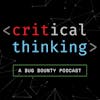
Episode 63: JHaddix Returns
Episode 63: In this episode of Critical Thinking - Bug Bounty Podcast we welcome back Jason Haddix (From Episode 12) to talk about some updates to his The Bug Hunter's Methodology, as well as his own personal life and hacking...

Recent Episodes

Episode 62: Frontend Language Oddities

Episode 61: A Hacker on Wall Street - JR0ch17

Episode 60: Our Take on PortSwigger's Top 10 Web Hacking Techniques of 2023

Episode 59: Bug Bounty Gadget Hunting & Hacker's Intuition

Episode 58: Youssef Sammouda - Client-Side & ATO War Stories

About the Hosts
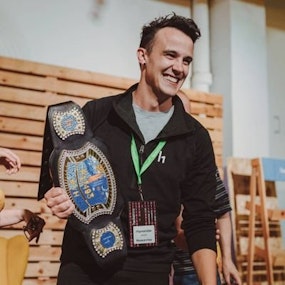
Justin Gardner (@rhynorater)
Full-time Bug Bounty Hunter
Justin is a full-time bug bounty hunter and top-ranked live hacking event competitor. He has taken home two Most Valuable Hacker awards and countless other 1st place & 2nd place trophies.
While Justin specializes in web hacking, he also dabbles in IoT and mobile hacking. He is also the HackerOne Ambassador for the Eastern US region.
Outside of hacking, Justin enjoys Volleyball, Brazilian Jiu Jitsu, and Real Estate investing.

Joel Margolis (@0xteknogeek)
AppSec @ Match Group
Joel is a appsec engineer at Match Group (the parent company of Tinder, Hinge, Plenty of Fish, OkCupid, Archer, and other dating apps). Joel is also a top bug bounty hunter and has participated and received awards in 30+ live hacking events.
Joel also has experience running a bug bounty program from his time with Uber and Tinder, so he understands the program side as well.
Outside of hacking, Joel enjoys hanging, playing Jazz music, playing with his dog, Max, and tinkering with his home automation system.
Fantastic pod
"So much great, fresh content. An absolute must for security researchers and engineers alike."
Great stuff by two goated hackers
"This podcast is incredible!! If you have any interest in cybersecurity, ethical hacking, or just tech in general then this is for you. Happy listening!"
Favorite Security Podcast
"Amazing content from two supremely talented hackers. A must-listen for anyone looking for high-quality security content."
The best bug bounty podcast
"Joel and Justin are extremely talented hackers sharing amazing insights into appsec. Give it a listen!"
Greater Good Science Center • Magazine • In Action • In Education
Politics Articles & More
The benefits and drawbacks of intuitive thinking, relying on our intuitions can help us be creative, but it might also contribute to conspiracy theories..
I have been researching the psychology of conspiracy beliefs for seven years now and people often ask me why people believe in them. This is not a simple question.
There are many reasons people might endorse conspiracy theories. Something that stands out to me, though, is how our thinking styles can influence the way we process information and therefore how prone we can be to conspiracy beliefs.
A preference for intuitive thinking over analytical thinking styles seems to be linked to endorsement of conspiracy theories.

Intuitive thinking is a thinking style reliant on immediate and unconscious judgments. It often follows gut feelings, whereas analytical thinking is about slower, more deliberate and detailed processing of information.
I’ve written before about how we can develop a more effortful, analytical thinking style to reduce our predisposition to conspiracy beliefs.
Research has shown critical thinking skills have many life benefits. For example, a study from 2017 found that people who scored higher in critical thinking skills reported fewer negative life events (for instance, getting a parking ticket or missing a flight). Critical thinking was a stronger predictor than intelligence for avoiding these types of events. It’s not clear why this is.
On the other hand, intuitive thinking has been linked to thinking errors. For example, intuitive thinking styles can lead to over-reliance on mental shortcuts, which can also increase susceptibility to conspiracy theories .
This can lead to dangerous consequences. For example, greater intuitive thinking has been linked to anti-vaccine conspiracy beliefs and vaccine hesitancy.
However, extremely successful people , such as Albert Einstein and Apple cofounder Steve Jobs, argued the importance of using their intuition and attributed their achievements to intuitive thinking.
The value of intuitive thinking
One benefit of intuitive thinking is that it takes little or no processing time, which allows us to make decisions and judgments quickly. And, in some circumstances, this is vital.
People working in crisis environments (such as the fire service) report the need to use intuitive thinking styles. During crises, it can be unrealistic to consistently use analytical thinking.
Experienced crisis managers often rely on intuitive thinking in the first instance, as their default strategy but, as the task allows, draw on more analytical thinking later on. Critical and intuitive thinking styles can be used in tandem.
What is important also is that this type of intuition develops through years of experience, which can produce expert intuition .
Intuition can be crucial in other areas, too. Creativity is often seen as a benefit of intuitive thinking styles. A review conducted in 2016 of research into idea generation found that creativity is positively linked to intuitive thinking.
Although creativity is difficult to define, it can be thought of as similar to problem solving, where information is used to reach a goal, in a new or unexpected way.
However, it is also important to note that the 2016 review found that combining intuitive and analytical thinking styles was best for idea evaluation.
What is the solution?
Now, research often focuses on developing ways to improve analytical thinking in order to reduce endorsement of dangerous conspiracy theories or reduce thinking errors and misconceptions .
However, we often consider analytic and intuitive thinking styles as an either-or, and when making decisions or judgments we must choose one over the other. However, a 2015 meta-analysis (where data from multiple studies are combined and analyzed) of 50 years of cognitive-style research found evidence that these thinking styles could happen at the same time.
Rather than two opposing ends of a spectrum, they are separate constructs, meaning that these thinking styles can happen together. Research in decision making also suggests that thinking style is flexible and the best decisions are made when the thinking style a person uses aligns with the situation at hand.
Some situations are more suited to analytical thinking styles (such as number tasks), while some are more suited to using intuition (such as understanding facial expressions). An adaptive decision maker is skilled in using both thinking styles.
So perhaps one way to reduce susceptibility to conspiracy theories is improving adaptive decision making. My 2021 study found that when people were confronted with the misconceptions they had previously made, overestimating the extent to which others endorse anti-vaccine conspiracy theories, they re-evaluated their decisions. This could suggest that thinking styles can depend on the situation and information at hand.
Although in many situations analytical thinking is better , we shouldn’t dismiss the intuitive thinking style conspiracy theorists seem to favor as unworkable or inflexible. The answer could lie in understanding both thinking styles and being able to adjust our thinking styles when needed.
This article is republished from The Conversation under a Creative Commons license. Read the original article .
About the Author
Darel cookson.
Darel Cookson, Ph.D. , is a senior lecturer in psychology at Nottingham Trent University.
You May Also Enjoy

This article — and everything on this site — is funded by readers like you.
Become a subscribing member today. Help us continue to bring “the science of a meaningful life” to you and to millions around the globe.

243: Mis- and Disinformation in Nutrition: Science, Ethics & Critical Thinking – Dr. Cami Ryan & Connie Diekman
- Length: 1 hr and 7 mins
Failed to add items
Add to cart failed., add to wish list failed., remove from wishlist failed., adding to library failed, follow podcast failed, unfollow podcast failed.

A new paper published in the Journal of Nutrition addresses mis- and disinformation in food science and nutrition and how this impacts practitioners and the public. The introduction and expansion of social media has created opportunities for credible health professionals but also challenges in that self-proclaimed experts use this platform to get attention, grow their brands and ultimately, spread mis- and disinformation.
This episode sheds light on the attention economy, where stories, regardless of accuracy, vie for scarce online attention and discusses the importance of learned critical thinking, encouraging listeners to question information, overcome personal biases, and prioritize relationships during challenging conversations. The role of registered dietitians as trusted sources of nutrition information is emphasized and listeners are urged to seek clarity from professionals when encountering contradictory claims. The dynamic nature of science is highlighted, urging openness to new knowledge and questioning of outdated beliefs. Overall, the episode equips listeners with valuable tools to discern credible nutrition information amidst the sea of misinformation and disinformation.
Tune into this episode with Dr. Cami Ryan and Dietitian Connie Diekman to learn about:
· Why the authors decided to publish a paper on the topic
· Why it’s important for nutrition professionals and the public to be aware of this issue
· The distinction between misinformation and disinformation
· The attention economy
· Critical thinking – what it is and how it impacts nutrition practice
· Code of ethics for nutrition professionals
· Responsibilities of nutrition practitioners
· How the introduction and expansion of social media has created more challenges
· Why perpetuation of misinformation harms society
· References and resources for the public and health professionals
This episode has been submitted to CDR for 1.0 free CEU.
Full shownotes and resources at: https://soundbitesrd.com/243
What listeners say about 243: Mis- and Disinformation in Nutrition: Science, Ethics & Critical Thinking – Dr. Cami Ryan & Connie Diekman
Reviews - please select the tabs below to change the source of reviews., audible.com reviews, amazon reviews.
- Help Center
- Redeem promo code
- About Audible
- Business Inquiries
- Audible in the News
- Accessibility
- ACX for Creators
- Bestsellers
- New York Times Best Sellers
- New releases
- Non-English Audiobooks
- Latino & Hispanic Voices
- Audible in Chinese
- How to listen
- Listen on Apple Devices
- Listen in the car
- Whispersync for Voice
Best Gear for Gunfighting Applying Critical Thinking to You for the Best Kit
- Podcast Episode
Add a plot in your language
User reviews
- March 20, 2024 (United Kingdom)
- See more company credits at IMDbPro
Technical specs
- Runtime 38 minutes
Related news
Contribute to this page.
- IMDb Answers: Help fill gaps in our data
- Learn more about contributing
More to explore

Recently viewed

When SCOTUS overturned Roe, it indicated that abortion was an issue to be relegated to the states. Instead, it has blown up American politics. Post columnists discuss the post-Dobbs world and what’s at stake in the upcoming mifepristone arguments.
Subscribe to The Washington Post here .
Introducing, "Impromptu"
“Impromptu” from Washington Post Opinions invites listeners to eavesdrop on our columnists as they have frank, thoughtful conversations on the news and cultural debates they can’t stop thinking about.
Lee Honors College
Gary l. belleville critical thinking student employee of the year award for 2023-24.

We’re excited to share that Jaqueline (Jackie) Chavarria has been awarded the Gary L. Belleville Critical Thinking Student Employee of the Year Award for 2023-24!
Jackie works at the Lee Honors College as a student receptionist and is a junior double majoring in Criminal Justice and Psychology. Jackie was nominated for this award by her supervisor, LHC executive assistant Jennifer Townsend.
When presenting the award, Amanda Jeppeson, Student Employment Specialist at WMU, shared that Jackie really impressed the judges with how well she’s managed communication within her staff team and disseminated information in a meaningful way to make the Lee Honors College a great place for Honors Broncos.
As a winning student for this academic year, Jackie’s name will be forwarded to a competition through the Midwest Association of Student Employment Administrators (MASEA) later this spring. Congratulations to Jackie on this well-deserved honor!
1 hr 24 min
Episode 60: Our Take on PortSwigger's Top 10 Web Hacking Techniques of 2023 Critical Thinking - Bug Bounty Podcast
Episode 60: In this episode of Critical Thinking - Bug Bounty Podcast Justin and Joel review the Portswigger Research list of top 10 web hacking techniques of 2023. Follow us on twitter at: @ctbbpodcast Send us any feedback here: [email protected] Shoutout to YTCracker for the awesome intro music! ------ Links ------ Follow your hosts Rhynorater & Teknogeek on twitter: ------ Ways to Support CTBBPodcast ------ Hop on the CTBB Discord We also do Discord subs at $25, $10, $5 - premium subscribers get access to private masterclasses, exploits, tools, scripts, un-redacted bug reports, etc. Sign up for Caido using the referral code CTBBPODCAST for a 10% discount. Resources: Top 10 web hacking techniques of 2023 1: Smashing the state machine 8: From Akamai to F5 to NTLM 3: SMTP Smuggling 4: PHP filter chains (Bonus Read) 5: HTTP Parsers Inconsistencies 6: HTTP Request Splitting 7: How I Hacked Microsoft Teams 9: Cookie Crumbles (Bonus Read) 10: Hacking root EPP servers to take control of zones Timestamps: (00:00:00) Introduction (00:04:26) 1: Smashing the state machine (00:11:56) 8: From Akamai to F5 to NTLM... with love (00:17:11) 3: SMTP Smuggling (00:26:27) 4: PHP filter chains (00:36:40) 5: HTTP Parsers Inconsistencies (00:44:56) 6: HTTP Request Splitting (00:53:43) 7: How I Hacked Microsoft Teams (01:02:25) 9: Cookie Crumbles (01:11:36) 10: EPP Server Takeover
- More Episodes
- Critical Thinking Podcast
Top Podcasts In Technology

IMAGES
VIDEO
COMMENTS
Data Skeptic. Data skeptic is a podcast that covers critical thinking from a scientific point of view. The need to think rationally and analytically in the scientific field is of the utmost importance. After all, false scientific claims and rules can bring about some very grave and serious consequences. The podcast is very engaging with various ...
The best Critical Thinking podcasts from thousands of podcasts on the web and ranked by traffic, social media followers & freshness. Learn more. Submit Your Podcast Critical Thinking Podcasts. Here are 30 Best Critical Thinking Podcasts worth listening to in 2024. 1. The Peter Attia Drive ...
Thinking Critically is a podcast brought to you by Intelligent Speculation and hosted by Jonathan Maloney, which provides individuals with the tools necessary to become a Critical Thinker. Informal logic (i.e., argument types, validity, soundness, logical fallacies, etc.), cognitive biases, mental models, and the scientific method along with other science related topics are all explained in ...
In this episode you'll learn how to practice your critical thinking skills. Bouygues outlines three key components of critical thinking: questioning your assumptions, reasoning through logic, and diversifying your thought process. Key episode topics include: strategy, strategy formulation, decision making and problem solving, managing ...
Thinking Critically is a podcast brought to you by Intelligent Speculation and hosted by Jonathan Maloney, which provides individuals with the tools necessary to become a Critical Thinker. Informal logic (i.e., argument types, validity, soundness, logical fallacies, etc.), cognitive biases, mental models, and the scientific method along with ...
Critical thinking is a vital skill that offers numerous positive benefits in various aspects of life. Here are some of the critical advantages of developing and applying necessary thinking skills: Better problem-solving: Critical thinking enables individuals to analyze problems from multiple perspectives, evaluate available information, and ...
Instead, leaders should deliberately approach each problem and devote time thinking through possible solutions. The good news, she says, is that critical thinking skills can developed and ...
Podcast 05 Nov, 2019. All locations. Skills development. Critical thinking is a key skill for HR and all people professionals - it's the ability to think well and to reflect objectively on the ideas, opinions and arguments of others. It can help us solve complex problems and make better decisions, bringing clarity to confusion and increasing ...
Thinking Critically is a podcast brought to you by Intelligent Speculation and hosted by Jonathan Maloney, which provides individuals with the tools necessary to become a Critical Thinker. Informal logic (i.e., argument types, validity, soundness, logical fallacies, etc.), cognitive biases, mental models, and the scientific method along with ...
Critical Reasoning: A Romp Through the Foothills of Logic on Apple Podcasts. 13 episodes. This series of podcasts by Marianne Talbot will equip you with everything you need to improve your reasoning skills. You will learn to recognize arguments and distinguish them from other sets of sentences, analyse them logic-book style into premises and ...
Brought to you by The Critical Thinking Institute (theCTInstitute.com), Headagogy disrupts the soft-spoken, NPR-mold for education discussion and does justice to the vibrant, challenging, meaningful, frustrating, empowering, complicated, fulfilling thing that is education, as well as the hardworking, dedicated, heartfelt, and (too often) pissed-off people who are educators.
Today on episode number 410 of the Teaching in Higher Ed podcast, Mays Imad is back, and she is Rethinking Critical Thinking. Produced by Innovate Learning, maximizing human potential. Welcome to this episode of . I'm Bonni Stachowiak and this is the space where we explore the art and science of being more effective at facilitating learning.
Critical Thinking Podcasts. Critical Thinking Podcasts serve as intellectual playgrounds where listeners engage in stimulating discussions, challenge assumptions, and sharpen their analytical skills. These podcasts provide a platform for exploring diverse perspectives, questioning conventional wisdom, and honing the ability to think critically about complex issues.
The Skeptics Guide. The Skeptics' Guide to the Universe is a weekly science podcast discussing the latest science news, critical thinking, bad science, conspiracies and controversies. -The Skeptics' Guide to the Universe: Your escape to reality - Produced by SGU Productions, LLC: https://www.theskepticsguide.org.
In this War Room podcast, War Room Editor-in-Chief Andrew Hill sits down with Professor of Behavioral Sciences Steve Gerras to discuss critical thinking, a key skill that senior leaders should develop. Gerras argues that it is, indeed, possible to improve one's ability to think with training and practice—even while recognizing that doing so ...
Episode 61: A Hacker on Wall Street - JR0ch17. Episode 61: In this episode of Critical Thinking - Bug Bounty Podcast Justin is joined by Jasmin Landry to share some stories about startup security, bug bounty, and the challenges of balancing both. He also shares his metho…. Feb. 29, 2024.
The Philosophy, Ideas, Critical thinking and Ethics show is an inspiring and thoughtful medium of cultural and artistic exploration that follows the work and stories of many knowledgeable individuals providing new perspectives and various novel ways of thinking on philosophical dialogue.
Critical thinking is a crucial skill for success in business and life. Developing critical thinking skills involves questioning assumptions, considering different perspectives, and challenging the status quo. Curiosity, open-mindedness, and the ability to listen to different viewpoints are key to effective critical thinking.
Thinking Clearly. Bob Froehlich-Retired Chemist, Counselor, Psychology Professor and Julia Minton-Technology Consultant. Crossing Silos: Promoting Critical Thinking with Epistemic Insight. St Mary's University. Critical Thinking, Complex Problem Solving, & Navigating Your Career to The Top. arvi rizqan. Dig Deeper: Critical Thinking in the ...
Research has shown critical thinking skills have many life benefits. For example, a study from 2017 found that people who scored higher in critical thinking skills reported fewer negative life events (for instance, getting a parking ticket or missing a flight). Critical thinking was a stronger predictor than intelligence for avoiding these ...
This episode sheds light on the attention economy, where stories, regardless of accuracy, vie for scarce online attention and discusses the importance of learned critical thinking, encouraging listeners to question information, overcome personal biases, and prioritize relationships during challenging conversations.
Critical Thinking with Andrew Coppens on Apple Podcasts. 514 episodes. Critically Thinking our way through the news and views of the day. Left, Right, Center, our goal is to focus on facts and truth as our guide through the insanity of today's world. Hosted on Acast.
IMDb is the world's most popular and authoritative source for movie, TV and celebrity content. Find ratings and reviews for the newest movie and TV shows. Get personalized recommendations, and learn where to watch across hundreds of streaming providers.
All Post podcasts. Frank, thoughtful conversations on the news and cultural debates we can't stop thinking about, from Post Opinions columnists.
CEOs and business leaders, management consulting senior partners, ground-breaking professors, thought-provoking writers and journalists, record-setting athletes and coaches, and award-winning actors and celebrities discuss the key issues facing the business world and broader society. Get free acce…
We're excited to share that Jaqueline (Jackie) Chavarria has been awarded the Gary L. Belleville Critical Thinking Student Employee of the Year Award for 2023-24! Jackie works at the Lee Honors College as a student receptionist and is a junior double majoring in Criminal Justice and Psychology.
114 episodes. The Revolution will be streamed LIVE! Comedians Ty Barnett and Ian Harris are "Critical AND Thinking". Two politically active, socially conscious and ethically responsible comedians who use humor. and critical thinking skills to push the national conversation forward, promoting science, reason, justice and empathy.
Episode 60: In this episode of Critical Thinking - Bug Bounty Podcast Justin and Joel review the Portswigger Research list of top 10 web hacking techniques of 2023. Follow us on twitter at: @ctbbpodcast Send us any feedback here: [email protected] Shoutout to YTCracker for the awesome…